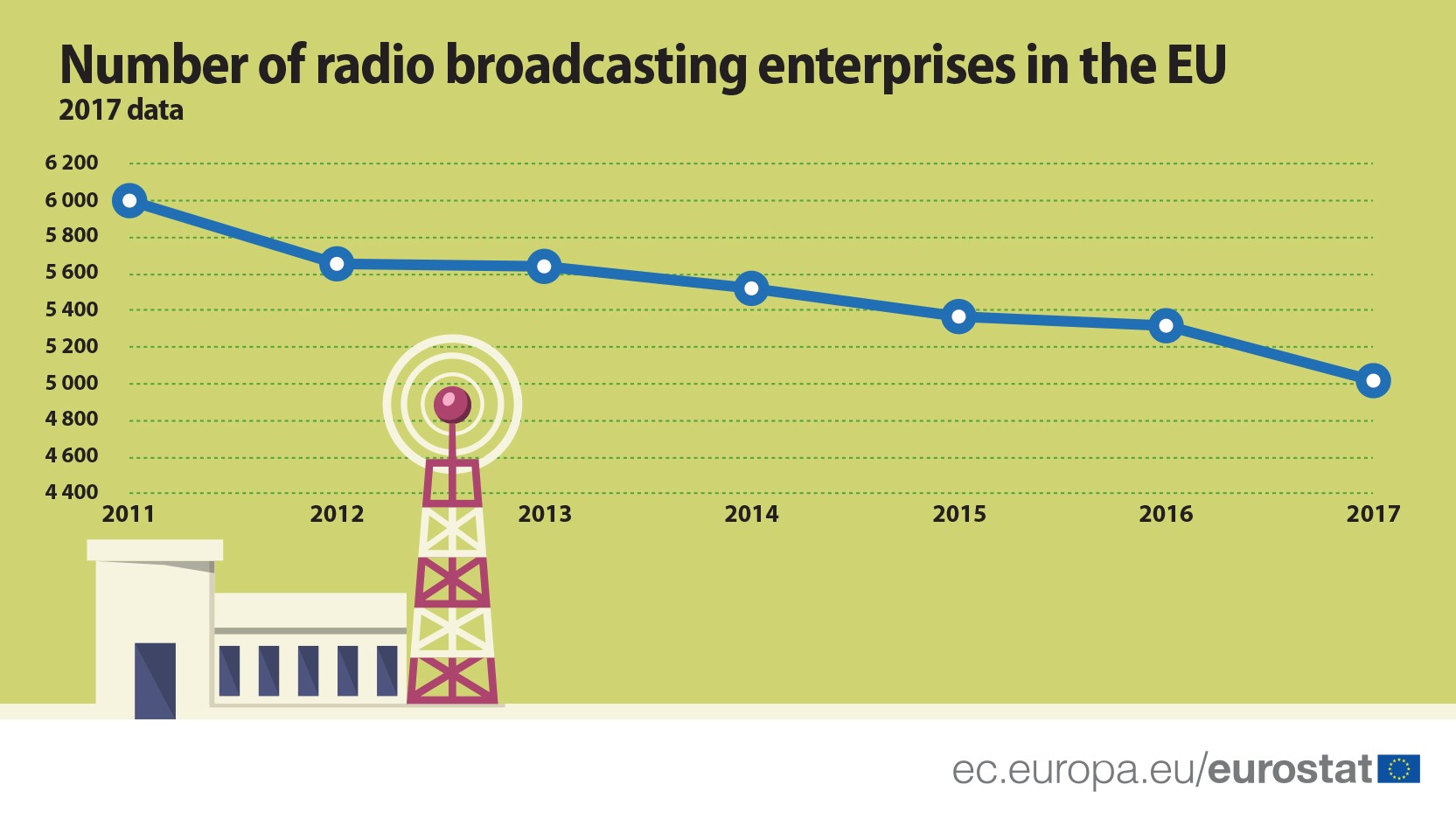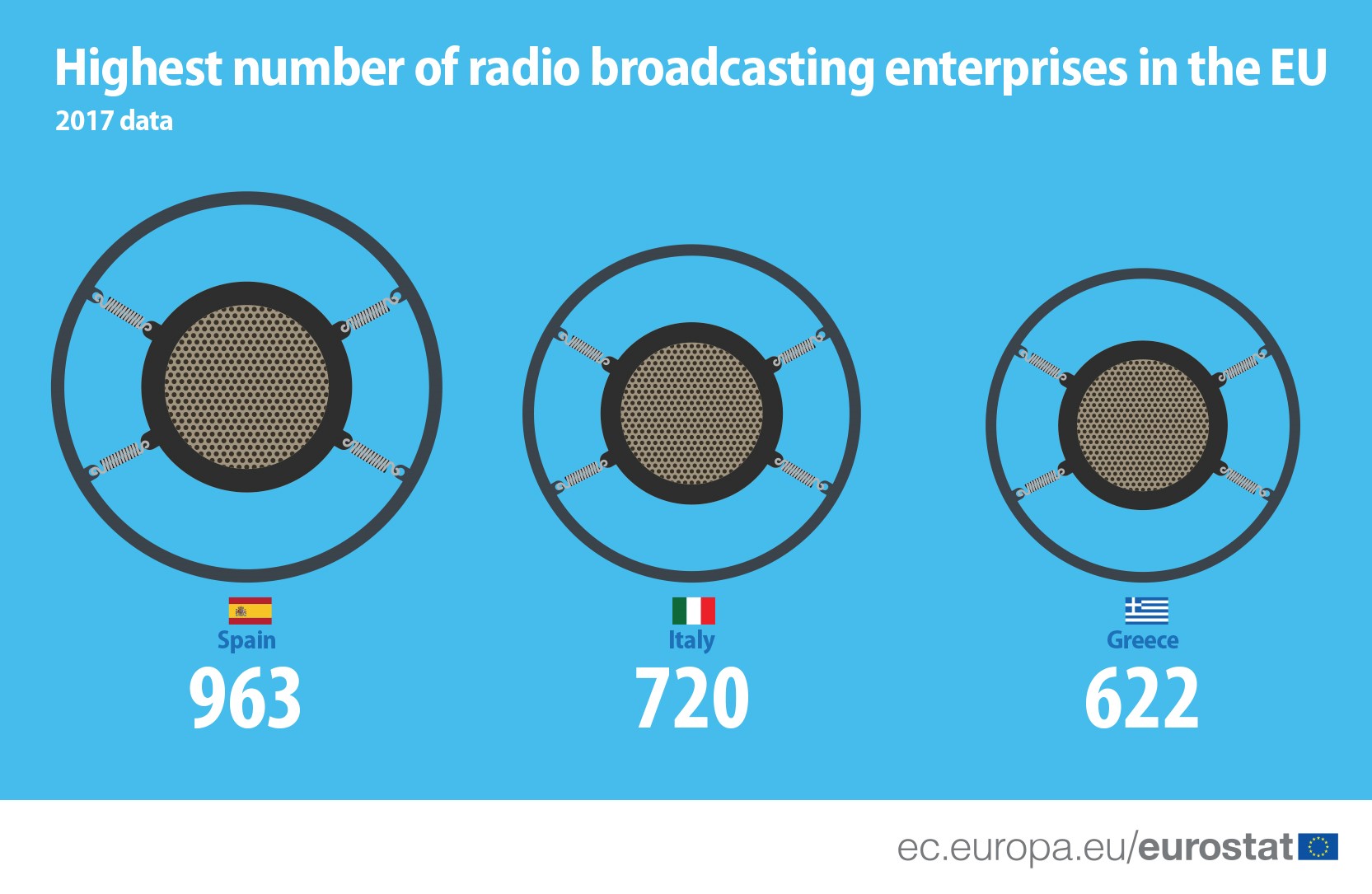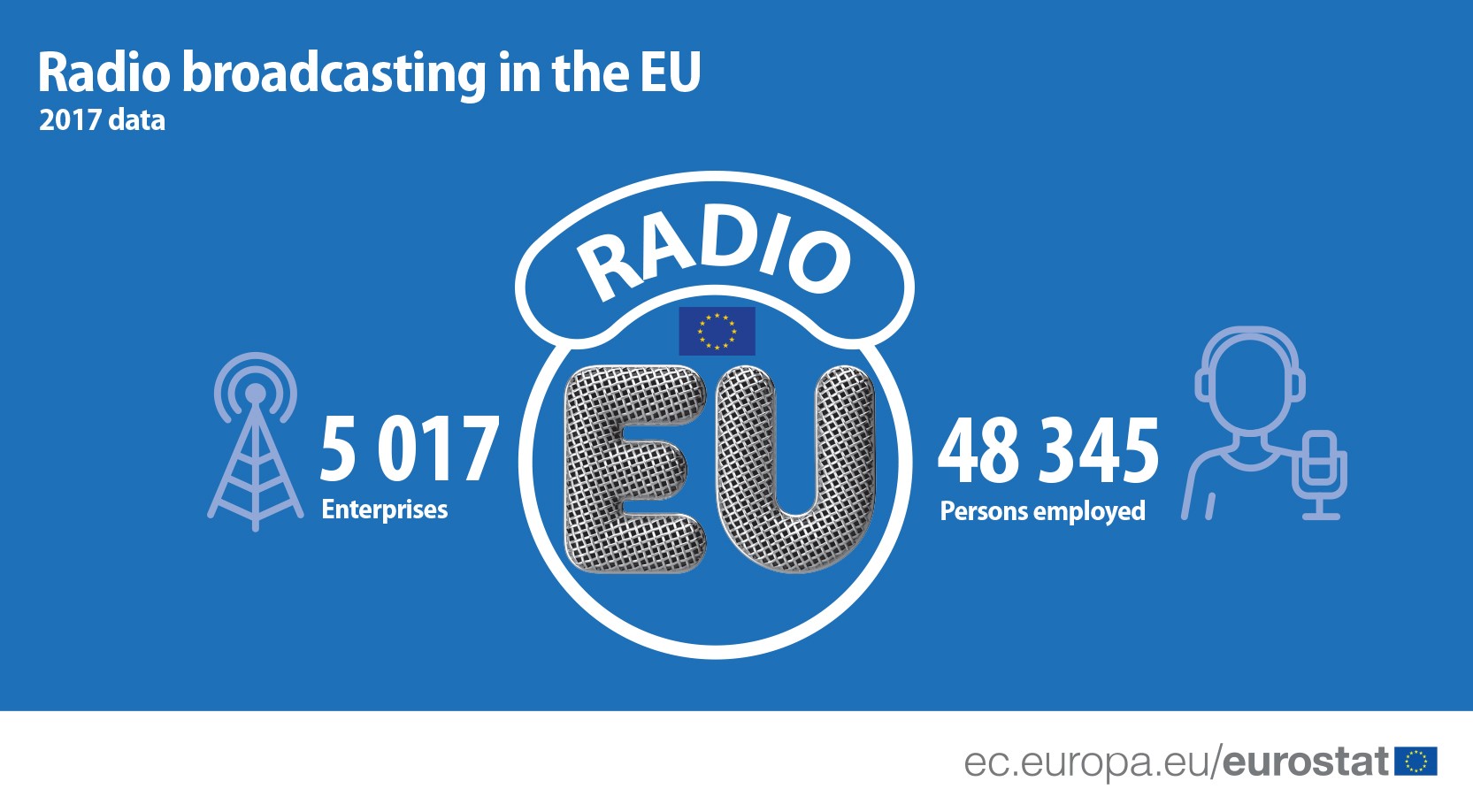There were 5 017 enterprises operating as radio broadcaster across the European Union (EU) in 2017. This is 300 fewer than in the previous year and 11% fewer than the 5 641 enterprises in 2013.
Source dataset: sbs_na_1a_se_r2
In 2017, radio broadcasting enterprises generated €2 652 million of value added, 29% less than in 2013, while they recorded a turnover of €5 192 million, down from €6 979 million in 2013.
Highest number of radio broadcasting enterprises in Spain, Italy and Greece
Among EU Member States, the number of radio broadcasting enterprises varied greatly. There were many more of these enterprises in Spain (963), Italy (720), Greece (622, provisional data), Hungary (310) and Portugal (293), than in Luxembourg (6), Estonia (10), Slovakia (16), Lithuania (23) and Cyprus (37).
Source dataset: sbs_na_1a_se_r2
Taking into account Member States population size, the number of radio broadcasting enterprises per million inhabitants also differs greatly between EU Member States. The highest ratios were recorded in Slovenia (76 radio broadcasting enterprises per million inhabitants), followed by Greece (58), Cyprus (43), Croatia (38), Hungary (32) and Portugal (28), while the lowest ones were observed in Germany, Poland, and Slovakia with 3 radio broadcasting enterprises per million inhabitants.
In 2017, radio broadcasting enterprises employed 48 345 persons in the EU, 14% less than in 2013.
Source dataset: sbs_na_1a_se_r2
The number of persons employed in this sector also varied greatly across the EU Member States. Germany employed 8 727 persons in the radio broadcasting sector whereas in Slovakia just 63 persons were employed in the same sector in 2017.
The number of persons employed as a percentage of total employment is low in all EU Member States, ranging from 0.10% in Greece and Sweden to almost zero in Czechia and Slovakia.
Notes:
- Number of enterprises: Data not available for Malta due to low reliability; data confidential for Ireland.
- Number of persons employed: Data not available for Malta due to low reliability; data confidential for Estonia, Ireland and Luxembourg. Sweden 2015 data instead of 2017. Hungary 2018 data instead of 2017.
- The European Union (EU) includes 27 EU Member States. The United Kingdom left the European Union on 31 January 2020. Further information is published here.
To contact us, please visit our User Support page.
For press queries, please contact our Media Support.




